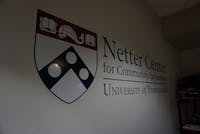Advance Registration Guide Spring'25
Welcome to the Advance Registration Guide! Use this page to find articles including double count courses, fun classes to take next semester, and promoted courses. This guide will be updated each semester ahead of advance registration.
M 1:45pm-4:44pm
What is a landscape painting or photograph? How do landscapes, as visual interpretations of the outside world, reveal a broad spectrum of relationships between nature, humans, the divine, territorial possessions, and power struggles? In this seminar, while reading foundational texts in landscape studies, our focus is on painterly and photographic representations of landscape in the Middle East from the 19th through the late 20th century, spanning regions such as Lebanon, Egypt, and Iran. We explore how the interpretation of nature functions as a domain for symbolic expressions of control over land, resources, and humans across the Middle East. For example, we examine how Orientalist landscapes created fictive geographies that portrayed the East as inferior to the West, thereby legitimizing Western dominance. Additionally, we investigate how some Middle Eastern artists disavowed ideological implications of representing landscape, instead exploring nature through imaginative, sensory, and intuitive lenses. We visit museums to practice visually analyzing landscapes and we learn to integrate our visual analysis with insights into historical and geopolitical contexts to create a critical framework.
MW 10:15am-11:44am
Spanning the waters between Europe, Africa, and Asia, the Mediterranean was a hub of commerce, a battleground for state-sanctioned sea raiders known as corsairs, and a space where captives were exchanged and empires clashed. In this seminar, we will explore how interactions in the early modern period shaped the Mediterranean’s political, economic, and social landscapes from diverse perspectives, with special attention to the often-overlooked histories of the North African and eastern Mediterranean coasts. Throughout the course, we will examine the expansion of maritime empires, the ebb and flow of corsairing activities, and the conflicts over trade routes that connected distant shores. We will also analyze personal narratives of merchants, captives, and corsairs to uncover how these encounters sparked cultural exchange. Through these stories, we will trace how themes of identity, belonging, mobility, and power emerge and assess their significance in the broader transformation of the Mediterranean world.
R 12pm-2:59pm
Friendship is a global keyword and a major ethical concept across various traditions. Given its distinct grammars and histories, friendship is impossible to define once and for all. Rather than reducing this multifaceted category to a set of definitions, this seminar explores the following overarching questions: What sensibilities and practices has the notion of friendship articulated in different societies, both past and present? How have dominant ideas about what constitutes friendship evolved historically in the West? Given friendship’s capacity to forge unconventional affections and experimental modes of sociality, how can it provide alternatives to, or challenge, the more standardized bonds of kinship and the modern nation? We will reflect on these and other questions related to friendship by engaging with history, anthropology, religious studies, philosophy, film, and literature.
TR 5:15pm-6:44pm
This survey course offers students the opportunity to engage with a range of discussions on masculinities and politics in global contexts. Masculinities are at the heart of debates over protection, migration and deportation, militaries, and armed groups in public discourses, as well as in psychology, behavioral studies, anthropology, security and terrorism studies. We will trace constructions of masculinities, examining time- and place-specific configurations of domination ranging from policing, surveillance, and racialization in the USA to the deportation of racialized men in carceral systems between Germany and Afghanistan. This course will also explore what joy and intimacy mean to cis men, discuss queer play with femininity and masculinity, cross-dressing practices of straight cis women, female masculinity, and contestations regarding what constitutes as “maleness” and how these play out on the bodies of women athletes competing in international games. The course considers examples from South Asia—with an emphasis on Afghanistan and Pakistan—as well as broader SSWANA (South Asia, Southwest Asia, and North Africa), Africa, the Americas and Europe.



















